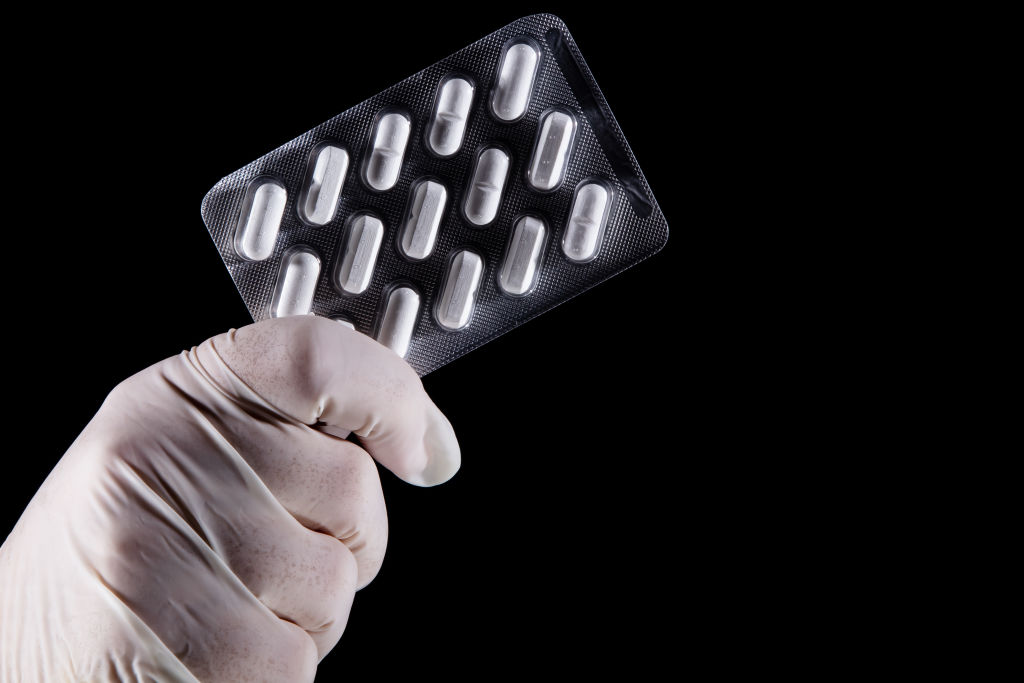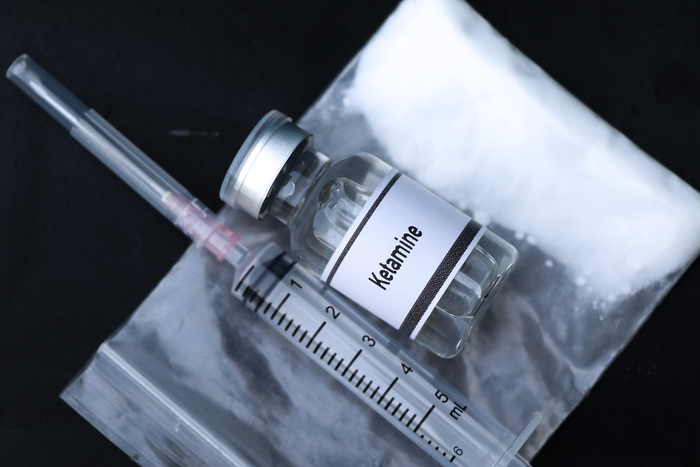(CNN Spanish) ––
During the year that covid-19 has been relentlessly in the world, several drugs and other chemicals that supposedly work against the virus have become popular.
However, in this case the remedy may be worse than the disease: the vast majority of them do not have scientific support and some even represent a danger to health.
Names such as ivermectin, remdesivir, hydroxychloroquine, and even disinfectants have fallen into the category of "remedies" against the coronavirus and are not really such.
And that, we insist, they can be a risk for those who ingest them.
In this glossary you can find the drugs and substances linked to covid-19, as well as what science and health organizations say about them.
Approved
Bamlanivimab (or monoclonal antibodies):
The US Food and Drug Administration (FDA) authorized in November 2020 the emergency use of this therapy from Eli Lilly and Company to treat mild to mild infections. moderate by coronavirus in adults and children.
However, being an emergency, that authorization included several requirements.
Among them, it must be administered in a hospital or other approved health care facility, where specialists can act if the patient experiences an adverse reaction.
In addition, the FDA added that "new data on safety and efficacy" will continue to be evaluated.
The antibody in bamlanivimab activates an immune response against infection that helps to cope with the effects of the coronavirus.
The authorization was based on a study published in October 2020 that found that the treatment appeared to reduce the risk of hospitalization and alleviate some symptoms in COVID-19 patients with mild to moderate disease.
465 non-hospitalized adults with symptoms were analyzed.
Also, it is important to note that treatment should be administered as soon as possible after a positive COVID-19 test result, within 10 days of the onset of symptoms, according to the FDA.
This treatment is not authorized for patients hospitalized or requiring oxygen therapy.
REGN-COV2 (Regeneron Antibody Therapy): Regeneron's
treatment also uses antibodies and received emergency use authorization from the FDA days after bamlanivimab.
This therapy is approved for patients 12 years of age and older with a mild or moderate case of coronavirus who are at high risk of the disease becoming severe.
When former President Donald Trump was infected with covid-19, he received this treatment to face the disease.
REGN-COV2 combines two monoclonal antibodies and was designed to block the infectivity of the virus that causes covid-19, according to the company.
They should also be given as soon as possible after symptoms appear.
Large-scale clinical trials of this therapy are still ongoing.
However, some preliminary data published in October last year indicated that it worked safely and with few side effects.
advertising
Read more about bamlanivimab and REGN-COV2 here.
In study
What we know so far about colchicine 1:48
Colchicine:
This anti-inflammatory drug recently made headlines, as the Montreal Heart Institute noted in a press release that the drug could reduce complications associated with COVID-19.
However, the details of the study, which was published in a scientific journal, are still largely unknown, as highlighted by Dr. Elmer Huerta, a public health specialist and contributor to CNN en Español.
We know that 4,488 patients were studied and that 4,159 of them with a diagnosis of covid-19 registered reductions in the risk of death or hospitalization after using the drug.
Colchicine has been used for quite some time to control inflammation.
And it is believed that it would be precisely because of this property that it can have a positive effect when fighting the virus, according to Dr. Huerta.
Still, the Pan American Health Organization (PAHO) said in November 2020 about the drug that "the evidence is very low certainty, so its effects are uncertain."
Read more about colchicine here.
Dexamethasone: This
is a steroid compound, specifically corticosteroid, which is generally used to treat certain kinds of arthritis, severe allergies, and asthma, among other conditions, including certain types of cancer.
UK researchers, who are part of the large Recovery Trial clinical trial, found that a 10-day low-dose dexamethasone regimen reduced the risk of death by a third among hospitalized trial patients requiring ventilation.
Now these findings are preliminary and studies are ongoing.
In addition, the WHO warned that this drug should not be taken to prevent covid-19 or to treat mild symptoms.
The organization explains that dexamethasone is promising "for treating critically ill and critically ill patients, but it was not found to be beneficial for patients with mild symptoms."
In addition, the WHO notes that it is a "powerful anti-inflammatory that reduces the immune response and may increase the risk of contracting other infections."
So no, don't go out and buy it just like that, please.
What we know about dexamethasone against covid-19 1:35
Read more about dexamethasone here.
Ivermectin:
There is still no solid scientific evidence to show that this anti-parasite drug is effective in treating COVID-19.
Even when it has been included in the treatment of patients in several Latin American countries, some private doctors recommend it and its consumption has become popular.
In this sense, Dr. Huerta affirmed that it is irresponsible that medicine is being promoted without scientific proof.
For its part, PAHO emphasized that ivermectin is not recommended to combat covid-19 precisely due to the lack of evidence.
And he added that the medicine is currently used incorrectly and poses a risk to the safety of patients.
Along the same lines, the FDA indicated that in the US ivermectin is not approved –– not even emergency–– for the prevention or treatment of COVID-19.
Now, this does not mean that there are no ongoing studies to find out, with all scientific protocols, if ivermectin can be useful against the coronavirus.
At the moment there are more than a hundred investigations.
Read more about ivermectin here.
Famotidine:
Simply put, it is a common medication that is often used to combat heartburn.
According to the Mayo Clinic, it is part of the treatment for stomach ulcers, indigestion, heartburn and gastric reflux.
Since April 2020, it has been given to coronavirus patients in New York hospitals as part of a trial that seeks to determine if it works for this disease.
So far, the results are preliminary.
In June 2020, a study on the clinical trial recorded that 10 people sick at home with Covid-19 got better with famotidine.
However, this is a small group of patient results and the results are not yet definitive.
Read more about famotidine here.
Plitidepsin:
This is an antiviral drug that, according to Dr. Huerta, was linked to the treatment of covid-19 after a study published in the journal
Science
indicated that the viral load of the coronavirus decreased.
However, it was an in vitro study, "that is, in the laboratory, in test tubes, with isolated cells," said Dr. Huerta.
This implies that "it is very initial" and "you cannot jump out of the test tube to people, to the patient."
That is, more trials and tests still need to be done to prove its effectiveness.
What is plitidepsin?
Dr. Huerta explains 1:17
It was shown not
Hydroxychloroquine:
This is perhaps the medicine that initially captured the most attention and fame as a possible way to treat coronavirus.
However, it has not been shown to work against it.
The WHO notes that current data on hydroxychloroquine suggest that it does not reduce “the mortality of hospitalized COVID-19 patients.
Nor does it help "people with moderate symptoms of this disease."
On the contrary, its side effects set off alarms among health authorities.
The FDA revoked the emergency use authorization for hydroxychloroquine and chloroquine in June 2020.
As determined by the agency, "chloroquine and hydroxychloroquine are unlikely to be effective in treating COVID-19."
He added: "In view of current serious cardiac adverse events and other possible serious side effects, the known and possible benefits of chloroquine and hydroxychloroquine no longer outweigh the known and possible risks for authorized use."
The FDA noted that a clinical study with hospitalized patients found that hydroxychloroquine "did not show a benefit in mortality or in speeding up recovery."
In simpler words: Hydroxychloroquine is 'unlikely' to kill or inhibit the COVID-19 virus.
We insist: no, it doesn't work.
(However, this does not affect the approved use of hydroxychloroquine for malaria or certain autoimmune diseases, conditions in which it has been proven effective.)
Study: hydroxychloroquine does not help treat covid-19 1:12
Although political leaders such as the President of Brazil, Jair Bolsonaro, and then-US President Donald Trump promoted hydroxychloroquine and even said they took it, the truth is that its effectiveness has been increasingly questioned.
The WHO also suspended tests with this drug in the Solidaridad trial, related to covid-19, in June last year.
According to the organization, the decision was due to the fact that according to data from several studies "hydroxychloroquine does not reduce mortality in patients hospitalized for covid-19."
Additionally, an analysis showed that coronavirus patients taking hydroxychloroquine had the same propensity to need mechanical ventilation and had higher death rates compared to those who did not take the drug, according to a study of hundreds of patients at the Health Administration. Similarly, several studies in Brazil, France and Sweden detected side effects, among other findings, in patients: they developed heart problems.
Read more about hydroxychloroquine here.
Remdesivir:
The name of this experimental antiviral drug became popular in the first months of the pandemic because it showed potential against covid-19.
But it was just that, a potential.
In November 2020, the WHO recommended that remdesivir not be used in patients who are hospitalized, "regardless of the severity of the disease."
According to the organization, "there is currently no evidence that remdesivir improves survival and other outcomes in these patients."
WHO noted that, following the results of the large Solidarity Trial, the evidence indicated that the drug had no significant effects on mortality, mechanical ventilation, "time to clinical improvement and other important patient outcomes."
Study: Remdesivir does not help patients with covid-19 2:08
A month before the WHO recommendation, the US FDA approved the emergency use of remdesivir, produced by Gilead Sciences.
However, it is very important to note that the drug was authorized for patients 12 years of age or older, weighing a minimum of 40 kilograms and requiring hospitalization for covid-19.
That is, it is not available to anyone and this is relevant if the subsequent warning from the WHO is taken into account.
Additionally, the FDA noted that remdesivir "should only be given in a hospital or health care setting capable of providing intensive care comparable to inpatient hospital care."
The agency also indicated that clinical trials to determine the safety and efficacy of this medicine in pediatric patients "are ongoing."
Read more about remdesivir here.
No scientific basis
Carvativir:
at the end of January, the questioned president of Venezuela Nicolás Maduro assured, without presenting evidence, that the drug carvativir "neutralizes 100% of the coronavirus."
The president maintained, without showing evidence, that the compound is manufactured in the country.
Also that it has been approved by the authorities for "mass production, distribution and treatment for coronavirus patients."
However, several medical specialists warned that the substance "has no scientific basis."
In the words of Dr. Huerta, carvativir "has not had the kind of studies that a medicine needs to be recommended to the public."
According to the expert, to show its efficacy and safety a drug must go through preclinical studies in isolated cells and animals.
In addition to phase 1, phase 2 and phase 3 clinical studies, Maduro has not disclosed information on the substance's components or the medical trials that it claims were conducted.
Neither of the procedure followed by the health authorities for its approval.
Definitely not
Chlorine dioxide:
Not only is there no scientific evidence on chlorine dioxide to treat coronavirus, it is also dangerous.
Very dangerous.
Since July 2020, PAHO has warned against taking products containing chlorine dioxide, sodium chlorite, sodium hypochlorite, or derivatives.
Precisely because "the ingestion or inhalation of these products could cause serious adverse effects".
In August 2020, the organization insisted on its call to avoid these products in light of the fact that products with chlorine dioxide or derivatives that falsely claimed to have curative properties for covid-19 were promoted.
In the words of PAHO, chlorine dioxide and sodium hypochlorite "could be toxic if ingested and can cause a variety of adverse effects."
Marcos Espinal, director of the PAHO Department of Infectious Diseases, said at the time that chlorine dioxide is "very toxic" and "can cause death, it can cause diarrhea, pneumonia and other series of events."
Chlorine dioxide doesn't cure anything, says Dr. Huerta 2:07
The UN explained in an article that chlorine dioxide and sodium chlorite "react rapidly in human tissues", so if ingested "they can cause irritation of the mouth, esophagus and stomach, with a severe irritative digestive picture , with the presence of nausea, vomiting and diarrhea, in addition to serious hematological, cardiovascular and kidney disorders.
We insist: it is very dangerous.
Bleach or other disinfectants:
the answer here is also a resounding no.
The WHO says it very clearly: “Bleach or other disinfectants should never be sprayed on the body or introduced into the body.
These substances can be toxic if ingested, and contact with them irritates and damages the skin and eyes.
In this sense, the organization pointed out, these substances should only be used to disinfect surfaces.
The same recommendation applies to those who think about drinking methanol, ethanol or bleach, which can be extremely dangerous.
"Not only would they not destroy the viruses present in the body, but they would damage internal tissues and organs," the organization explained.












